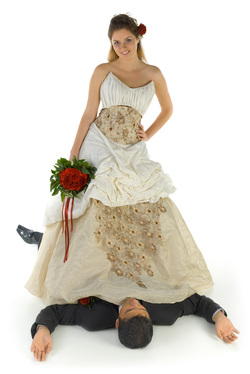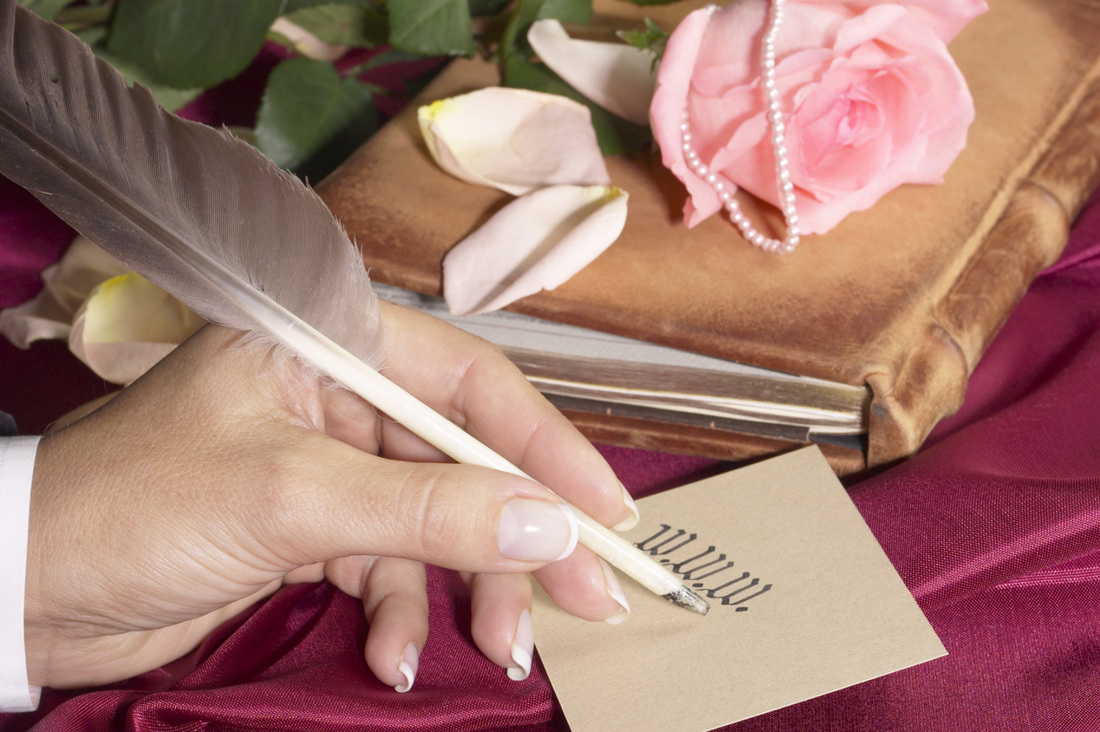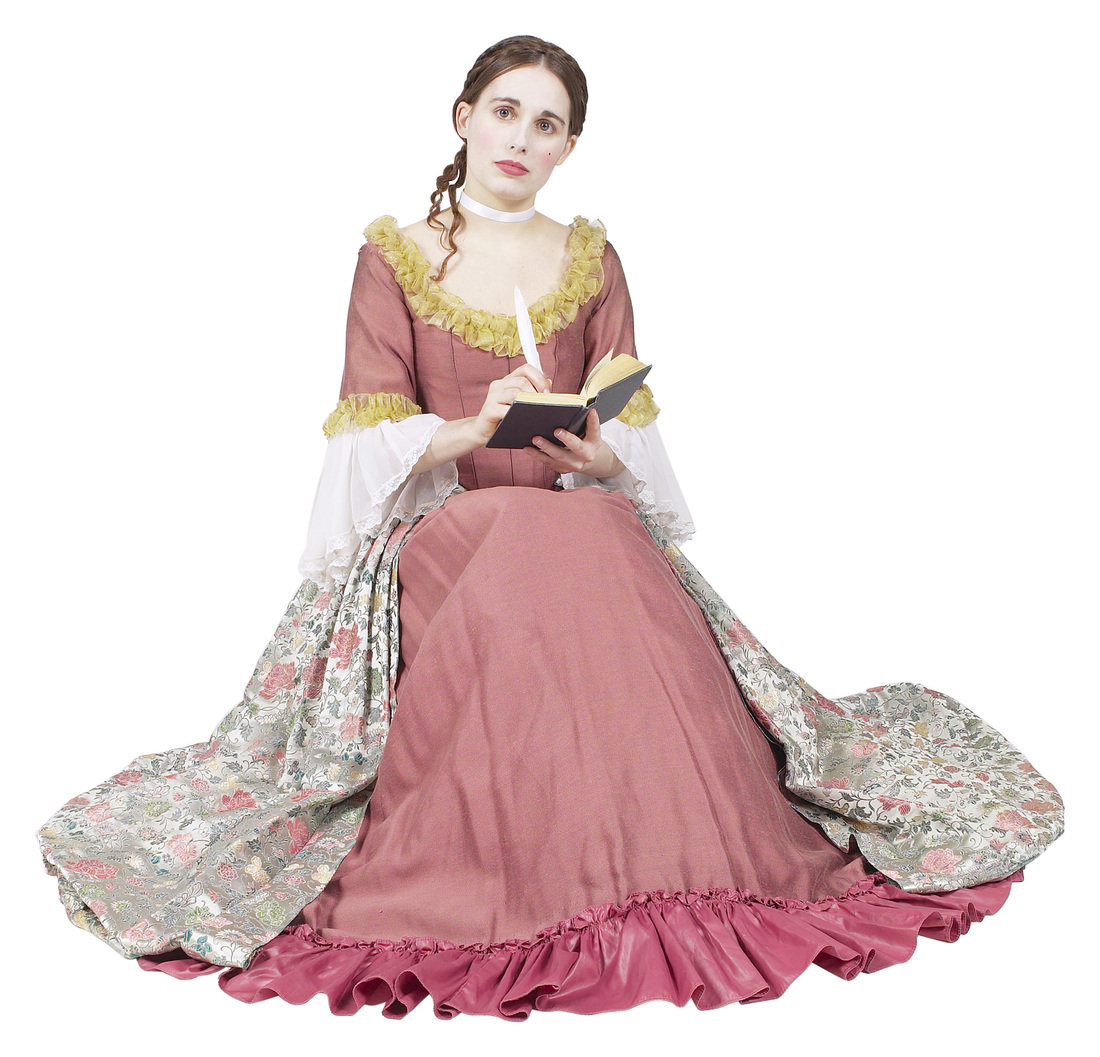Once upon a time, I used to write letters. I wrote bout things I wanted to see happen in my community. People came to me requesting I write letters for the, If the first letter did not achieve what we wanted to see happen for our community, I wrote another letter—and another—and another, until we achieved our goal. I moved on to non-fiction writing, I had all kinds of things I wanted to say. Then, I became a proofreader, and I had other people's words to assist develop their style and grammar and their plots to point out the plot holes. I still do this, I love it. I heard a voice within my own head. Stories longing to get out. I sat down, and I started writing. The stories pour out...I sometimes wonder where they come from. I write on my desk computer, my laptop in the garden and my iPad on the beach, but I write—and write, all the time I'm writing or thinking of writing. People ask, "How do you become a writer." Answer is simple, write—don't just talk about writing one day, write every day. Even beginning by writing a blog, will teach you a lot about writing. Check out bloggersmuse."I was born into Bolivar's labyrinth,
so I must believe
in the hope of Rabelais's great perhaps."
-John Green, Looking for Alaska
Sometimes a man hits upon a place to which he mysteriously feels that he belongs.
I feel like this when i find a place where I'm at peace both with nature yet there is the security of community near, should I need them.
I'm a person who loves solitude. I want to write, read, create, my occasional visits to and from family and my husband near me, fishing quietly, contentedly, or reading, is all I need for companionship...except perhaps the dog.
We are both contented people, my man and I. A moonlight walk in the bush, with a torch to watch out for wildlife, or on the beach with the dog, is all the entertainment we ever desire these days. We are just, so at peace, with each other, our creativity and our home—wherever we decide to make it, on any given day.
"I have an idea that some men are born out of their due place. Accident has cast them amid certain surroundings, but they have always a nostalgia for a home they know not. They are strangers in their birthplace, and the leafy lanes they have known from childhood or the populous streets in which they have played, remain but a place of passage.
They may spend their whole lives aliens among their kindred and remain aloof among the only scenes they have ever known. Perhaps it is this sense of strangeness that sends men far and wide in" the search for something permanent, to which they may attach themselves. Perhaps some deep-rooted atavism urges the wanderer back to lands which his ancestors left in the dim beginnings of history.
Sometimes a man hits upon a place to which he mysteriously feels that he belongs. Here is the home he sought, and he will settle amid scenes that he has never seen before, among men he has never known, as though they were familiar to him from his birth. Here at last he finds rest." — W Somerset Maugham, The Moon and Sixpence
I write what I call contemporary women’s fiction with an edge.
I write about women’s lives, hopes and dreams and relationships. I write of triumph over adversity. I write a coming of age story that is both literary and romantic fiction, with a little mystery. My characters and their stories fall a little bit outside of romance genre, I hope you find them more interesting than pure romance, because I like a good story.
When I write a book, my characters become my family, and my family accepts they are a part of our lives. They become that real to me. When I begin to write, it is almost as if the character takes over me and writes their story. I look back at the work and wonder where the story came from. Many readers believe the stories to be real, they believe I've written my story. That's not always good, I've written of many things I'd not want people t assume I have done.
I'm pleased my readers have related to the stories, empathize with them, sometimes become angry at them, laughed with them, and when the occasion calls for it, to cried with them, too.
Now to share some of my favorite quotes.
"Forgive me my nonsense,
as I also forgive the nonsense of those
who think they talk sense."
~Robert Frost "Do I contradict myself?
Very well, then I contradict myself,
I am large, I contain multitudes."
~Walt Whitman "All that is necessary for the triumph of evil
is that good men do nothing."
~Edmund Burke. "A successful marriage
requires falling in love many times,
always with the same person."
~ Mignon McLaughlin
Do you give flowers for Valentines Day? My husband and I, have through the years, given each other the most unromantic seeming gifts, and I've loved every one, more than I would diamonds and flowers.Don't get me wrong, I adore flowers, it's simply that I'd prefer to pick flowers from my garden with their beautiful, cottage garden, naturally curved graceful stems, and slight imperfections that make them seem all the more beautiful. I'm not a fan of stiff perfection of grown for sale roses. Now give me a garden shed, and I'm over the moon with ecstasy.
So, that's what my husband and I give each other for Valentines day, things that are practical, unromantic to some people, but just what we need and lasting—as has been our relationship. If you are into the language of fllowers and see giving flowers as the perfect expression of love, then here s some information about, what flowers say about you. Arlington mother and author Amy Brecount White speaks the Language of Flowers and will be giving a talk at the US Botanic Garden on Valentine's Day, February 14th, at 1 pm. It's free, and open to the public. You may register by phone: 202.225.1116. United States Botanic Garden, 100 Maryland Ave., SW If you want to make a Tussie Mussie click here for a You Tube video of Amy Brecount White showing her magic at a signing for her novel for young adults "Forget Her-Nots" HarperCollins Green Willow Books. I used to make Tussie Mussie's and sell them at a market for pin money. it was fun and a great way to use the contents of my cottage garden and earn pin money.
Do you have, the elements of style?
No, not personal grooming style, style in the way you write? Can you write and avoid using superfluous words, cliche and purple prose? For a long time I was a writer, though I didn't consider myself a romance writer, because I cannot stand ridiculous, romantic purple prose, flowery language that isn't the way people speak. Then i realised, I do love a good romance story, it was only the way they are written, by some people, I didn't like. So I dug deeper into romance literature, often finding the best romance stories weren't sold in the romance genre, but in the literary fiction section filled with beautiful stylish writing. This is what i mean by 'style.' No one can teach it better, in a few words, that
Do you have a copy of The Elements of Style - William Strunk, Jr. & E.B. White?
If not, and you are a writer, I highly recommend you own a copy and carry it around with you and read it until it's imprinted in your brain, with minor variations to suit your country of origin. You just won't go wrong with taking most of the advice in this small book.
The author of "Stuart Little" and "Charlotte's Web" was asked to write the Introduction of the book penned by his college writing instructor, Dr. William Strunk, Jr. This Introduciton, which was in the 1979 edition of "Elements", White mentioned this when he used the slim volume for his English 8 course, called "The Elements of Style." He subsequently passed the class—the book helped, of course—and was known on his college campus as "the little book," emphasis on little. The title was privately published by the author.
Years later, White was asked by Macmillion Publishing to rewrite the book for the college market. The year was 1957, Strunk had since passed on, and though White forgot the book, he never forgot the professor. Reading through it again to add notes of his own, White says, "seemed to me to contain rich deposits of gold. It was Will Strunk's ... attempt to to cut the vast tangle of English rhetoric down to size and write its rules and principles on the head of a pin."
Learning to write is an ongoing process and I've since moved on to larger manuals to study and university level writer's courses. Still, this small book remains in my essential writer's toolkit library.
I am a member of a critique group called " Critique Circle." there are some excellent members there, fellow authors who critique your work for credits you earn by critiquing other writer's work. Or you can go to free websites, such as Constructive Critique, and learn writing tips. Or purchase constructive critiques, proofreading and copy-editing from the professionals. I copy-edit romance writer's works. Kathryn Shell, copy edits fiction and non-fiction work. Critique Circle has a blog where you can learn from fellow authors. When you begin at Critique Circle, you go in the newbies queue and you will get a range of critiques from both experienced and inexperienced critiques. Don't take them to heart. 40% may love your work 40% hate it and 20% are just going though the motions of earning points for your themselves and don't contribute a lot. That's human nature, don't expect 100% useful critiques, nor follow 100% of the advice given. Select what advice you receive from a critique and use that as suits your own writing style, and learn to ignore the rest. That is what I found the most difficult thing to do, with a critique process, learning not to change my work according to other people's plot and style preferences. Learn to maintain your own style not another. I actually pay a professional to critique most of my work before submission and they pay me to critique theirs. We could work an exchange situation, however this fee structure system is fair, and allows for variations in our need, and shows respect for each others professional author status. Where is my work? You can't see it, I've ghost written for a few special people. I'm about to travel 4,000k to work with a new client. His name will be on his book, not mine. As earn your point critique groups go, Critique Circle is probably one of the best. Having a good writing mentor, is excellent too.
"A friend is one who knows you
and loves you just the same."
— Elbert Hubbard.
My friend, Kathy Shell is a travel writer and artist. She also travels with her dog and keeps a doggiesblog. She has turned her hand to creating images with beautiful quotes, such as the one above. Kathy and her husband are planning another Australia wide tour. They travel write and she also writes historical Australian Novels under a pen name.
" Hope is the thing with feathers
That perches in the soul
And sings the tune without the words
And never stops at all."
—Emily Dickinson.
I walk by the lake every evening searching for tail feathers from the abundant bird life, in order to make quills for my calligraphy writing. My friend, Ryn Shell, found this feather for me and made this lovely visual image by photographing it against a vintage book and adding a beautiful, Emily Dickinson quote: Rose Scented Ink.Materials 1 oz. bottle of red, blue or black ink Small decorative bottle Small glass funnel 20 drops unscented vodka 4 drops rose essential Instructions Pour the ink into the decorative bottle, using the glass funnel. (A glass funnel can be washed out; plastic will stain). Mix the vodka and essential oil together in a glass measuring cup. Slowly add this mixture to the ink Screw the top on tightly and gently shake. Now write a letter to someone you love. If you need assistance with proofreading, my acclaimed creative friend Kathryn Shell is currently accepting selected new clients.
|
















 RSS Feed
RSS Feed
